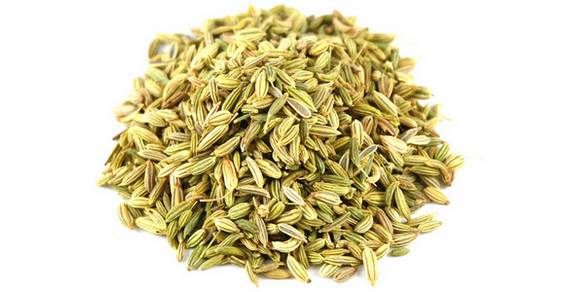Fennel tea, a natural aid especially in case of difficult digestion, bloating and abdominal cramps. Let's find out all the properties of this drink, how to best prepare it but also the possible contraindications (especially for children).
Don't store avocado like this: it's dangerousHerbal tea with fennel, a natural aid especially in case of difficult digestion, bloating and abdominal cramps. Let's find out all the properties of this drink, how to best prepare it but also the possible contraindications (especially for children).
Fennel has been used not only as a useful herb in cooking but also as a natural remedy since ancient Greek times.
A cup of fennel tea, which is usually made with the seeds of this plant but can also be prepared with fresh leaves or the bulb, can help our well-being in many situations.
This is due to the fact that fennel is rich in a series of active ingredients with digestive and carminative power but also to the presence of chemical substances similar to estrogen that give it interesting properties in particular for women.
Index
Properties of fennel tea
Fennel tea is a real cure-all especially after meals as it is able to treat various digestive problems. However, this drink also has other properties that it is good to know in order to make the most of its beneficial effects when it is most needed.
- Stomach and intestine: fennel tea helps to solve problems such as burning, flatulence, swelling, cramps and diarrhea. It is a natural antispasmodic that can therefore help relax the digestive tract and relieve cramps thus treating the main symptoms of irritable bowel syndrome.
- Menstruation and menopause: Since fennel contains substances similar to estrogen but of plant origin, it can help reduce menstrual cramps and symptoms of menopause.
- Purifying: fennel tea purifies the blood and supports the kidneys, improving their function and preventing stones.
- For the well-being of the oral cavity: fennel can relieve inflammation of the gums and treat the problem of bad breath, thanks to the antibacterial properties of some of its active ingredients.
- Water retention and weight loss: fennel tea helps reduce water retention and burn fat faster by also regulating appetite. It is therefore a drink often recommended for those who want to lose some weight.
- Preventing diseases: this herbal tea helps prevent the onset of cold symptoms, helps relieve sore throats and most upper respiratory tract problems by eliminating congestion and excess phlegm.

How to prepare it
The fennel tea is prepared differently depending on whether the seeds, leaves or the central part of the bulb are used.
With fennel seeds
Start by gently pounding about 1 teaspoon of fennel seeds in a mortar. This will release the flavor, oils and aroma they contain. Collect the seeds with a teaspoon and place them in a tea dispenser or strainer and pour 1 cup of boiling water over them. Leave to infuse covered for 7-10 minutes before filtering and drinking.
With fresh leaves
Thoroughly rinse some fresh leaves, cut them and immerse them in a cup of boiling water, leaving them covered for 15-20 minutes. Then strain and drink.
With the bulb
Clean the bulb very well, cut a piece and mince it. Pour over boiling water and leave to infuse for 15-20 minutes, covering everything. Filter and drink.
How to use it and how much to drink
Generally it is recommended to take 2 to 4 cups a day of fennel tea. If you want to treat gastrointestinal problems, it would be good to drink it after main meals, in other cases you can sip it at any time of the day.
There is also an external use of this herbal tea which can be useful for example to make compresses on swollen and tired eyes. In this case, just dip a cotton ball in the slightly warm infusion and leave it on the eyelids for 10 minutes. This will help reduce swelling and treat any eye infections such as conjunctivitis.
Is it recommended for babies and children?
There are still conflicting opinions on whether or not to give a few teaspoons of fennel herbal tea to infants in case of colic, even if most experts currently suggest avoiding it. While fennel can help to stretch the intestines and eliminate the gas that bothers children so much, on the other hand, adding drinks other than milk can compromise breastfeeding or in any case give a sense of fullness to children. which instead should take all the nutrients contained in milk.
The most important speech, however, concerns the content of estragon, an active ingredient present in fennel that exposes even adults to risks if taken in large doses (obviously less is enough for newborns). The INRAN, the National Research Institute for Food and Nutrition, sanctioned the toxicity of fennel tea for children. In fact, in a study of a few years ago it showed that the concentration of this substance present in the herbal tea is high enough to advise against its administration to newborns.

On the other hand, there would be no major contraindications in older children (after 4 years), although probably due to the various problems that may arise there are more suitable natural remedies and in any case if you use this drink you must always do it sporadically and in small doses. If you have any doubts, always contact your trusted pediatrician.
Herbal tea with fennel and breastfeeding
Traditionally, fennel tea was recommended to increase milk flow in breastfeeding mothers. Today it is preferred to avoid, again due to the presence of estragon. The best way to promote good milk production remains to attach the baby as many times as he wants, or to breastfeed on demand.
However, if you choose to take it, it is best not to do it in large doses and daily. Always contact an expert for any doubts.
Controindicazioni
Fennel tea, even if it is apparently a harmless drink, can still have contraindications and side effects:
- May cause allergy: if you are allergic to carrots or celery, remember that fennel comes from the same botanical family and it is therefore likely that this herbal tea can trigger unwanted reactions and lead to symptoms such as itching, hives or swelling of the skin.
- Drug interactions: if you are taking any medication, talk to your doctor first because this herbal tea could interact by increasing the effects of the medicine or on the contrary reducing them.
- Estrogen-dependent cancer: it may not be recommended for cancer patients to drink this herbal tea, particularly for those with estrogen-dependent tumors. In other cases it could be useful instead to soothe stomach discomfort due to therapies.
- To avoid in pregnancy: better not to drink fennel tea if you are pregnant.
On herbal teas, read also:
- 10 slimming herbal teas and diuretics
- Detox: the perfect purifying herbal tea Detox: the perfect purifying herbal tea
- Relaxing herbal teas: 10 recipes against stress and insomnia


























